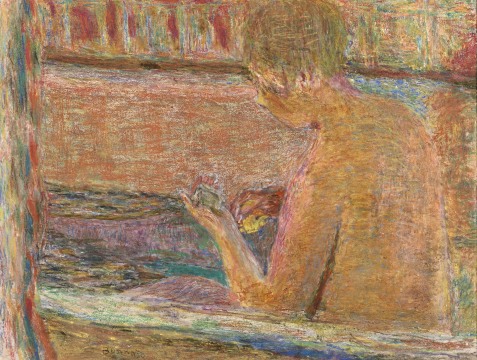
Larry Poons (American, b. 1937) early paintings from the 1960s are optical arrangements of dots and ellipses that float against monochromatic backgrounds, with formal elements determined by plotting points on a gridded matrix according to predetermined mathematical principles. In the 1970s, Poons began pouring, throwing, and splashing paint onto the surface of the canvas. In the 1980s, he began to build the surface of his paintings with foam, rope, and onionskin paper, extending the paintings dramatically into space. In the early 1990s, Poons returned to his use of the paintbrush, and his work continues in this vein today. Working in the surround, he paints on an entire roll of canvas hung on a circular framework that stretches the length of his studio. He then crops from the roll to create finished paintings.
Larry Poons’ work is included in major museum and private collections including The Albright-Knox Gallery, Buffalo; Art Gallery of Ontario, Toronto; The Denver Art Museum; The Hirschhorn Museum and Sculpture Garden, Washington, D.C.; The Los Angeles County Museum of Art; Museum of Fine Art, Boston; Museum of Fine Art, Houston; Museum of Contemporary Art, Los Angeles; Museum of Modern Art, New York; Philadelphia Museum of Art, Philadelphia; Solomon R. Guggenheim Museum, New York; The Tate Gallery, London; and The Whitney Museum of American Art, New York.

